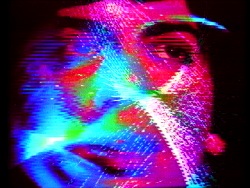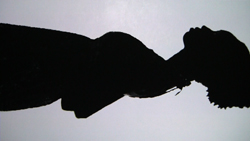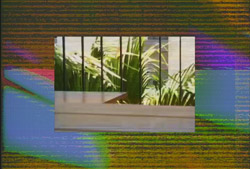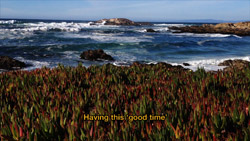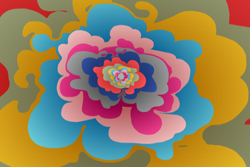
Artists' Video from EAI at the Sagamore Hotel in Miami
Artists' Video from EAI at the Sagamore Hotel in Miami
1671 Collins Avenue
Miami, Florida
December, 2015
Artists' Video from EAI at the Sagamore Hotel in Miami
1671 Collins Avenue
Miami, Florida
December, 2015
Artists' Video from EAI at the Sagamore Hotel in Miami
1671 Collins Avenue
Miami, Florida
December, 2015
Works
Drawing from Paik's earliest experiments with video synthesizers, Analogue Assemblage employs current technology to create a multilayered montage that references both the old and the new. An eerie electronic score from 1969 floats over ghostly processed images; the result is a paean to the way the future was.
Sondra Perry's videos and performances foreground the tools of digital production as a way to critically reflect on new technologies of representation and to remobilize their potential. At once abstract and representational, the video Black Girl as a Landscape articulates Perry’s stated interest in the possibility of abstraction as a way of creating dimensionality that connections individual bodies to larger visual and environmental ecologies.
The golden, barren landscape of Death Valley, recorded by Cho from a moving car, provides the luminous and mysterious texture of Buoy. Cho reflects on the polar extremes of this desert, once the floor of a vast sea and now traversed by tourists. In contrast to the horizontal landscape, which floats ceaselessly past Cho's camera, vertical "strata" pattern the imagery, creating an axis between natural landscape and Cho's composition.
CASCADE/Vertical Landscapes
MICA-TV in collaboration with Dike Blair and Dan Graham.
1988, 6:30 min, color, sound
Collaborating with artists Dike Blair and Dan Graham, and musician/composer Christian Marclay, MICA-TV crafts an ode to the urban and suburban architecture of the contemporary American cultural landscape.
LoVid continues their investigation into the intersections between the organic forms of bodies and nature and the inorganic world of technology and electronics. cell-a-scape visualizes the juxtaposition of media with physical objects, geographic spaces, and human culture, and foregrounds the porous boundaries between the "reality" of nature and the constructed experience of technology.
Fictitious subtitles from imagined non-English language films are synchronized to landscape videos shot by the artist on consumer equipment, often using existing structures, such as bus windows, as makeshift dollies or tripods. The effect, as the artist describes it, is "intended to evoke widescreen wordless narratives."
Melter finds Murata applying his deft touch with image-making software to questions of fluidity. Exploring formal tropes of melting, rippling, and bubbling, Murata's abstract experiment in hypnotic perception is at once organic and totally digital.
Hill's early formalist works explore the manipulation of electronic color and image density through the camera obscura and image processing devices, with references to the medium of painting. In the silent Windows, the image of windows in a darkened room is digitized, densely layered, and abstracted in a series of graphic compositions.
